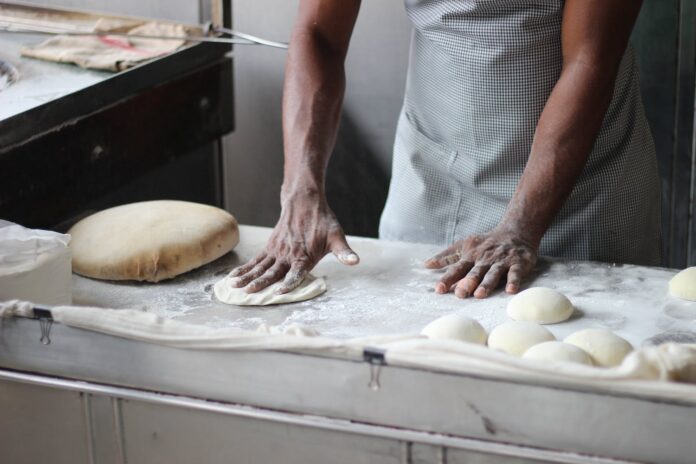
By
The Harris family knew it had a great business idea that spoke directly to the needs of communities of color. Their plan — to create a monthly package of niche products that were better and more inclusive than the subscription box services available in 2015 — grew into the Hues Company and the HuesBox.
In 2016, Jasmine Harris, her mother, Robin, and her sister, Jenae, launched their company, curating and personalizing boxes featuring minority-owned health and beauty brands. “Every month, we were shipping the boxes by hand, anywhere from 350 to 700,” Jasmine Harris says.
Within a few years, the company grew beyond a box delivered to doors to include more events and experiences.
They worked with small companies on branding, marketing, and growth opportunities. In February 2019, the Hues Company hosted a gifting experience for celebrities during Super Bowl LIII. Singer Trina Braxton, Real Housewives of Potomac star Gizelle Bryant, and artist Jermaine Dupri were among those in attendance.
But everything came to a screeching halt when the 2020 COVID-19 pandemic hit.
“The lockdown started, so we couldn’t travel, and it was more difficult for companies to ship things,” Harris says. “All of the other small businesses that we worked with were in more precarious positions.”
Black-owned businesses across industries struggled to stay open during the first five months of the pandemic. Changes in global supply chains and a fast drop off in customers reduced the number of Black small businesses in operation from slightly over 1 million in February 2020 to around 638,000 by April, according to research from the University of California, Santa Cruz.
“We, like many companies around that time, did a cost-benefit analysis,” Harris adds. “We thought about available resources and access to things, and we just said, ‘We need to shut this down.’”
Over 441,000 Black small businesses closed in those early months. For some, the decision was a temporary one. For others, like the Hues Company and HuesBox, it was permanent.
With growing success, what went wrong?
What They Need Behind the Scenes
Many business owners, including Harris, believe that venture capital or additional funding would have saved their business. And that might be true because more money leads to employees, profit, and growth.
New data analysis from Prosperity Now, an economic opportunity nonprofit, found that difficulty accessing capital was a significant factor in the decision to close their business for 69% of Black former entrepreneurs. And 85% said making rent or mortgage payments for their business was another reason.
But money is only part of what a business owner needs to be successful.
More than half of Black former entrepreneurs said they struggled to navigate state and federal regulations, and 72% reported challenges with maintaining business licenses. “There are so many different aspects [to running a business],” Annette Jacoby, director of applied research at Prosperity Now, tells Word In Black.
“If you don’t have that network or people advising and supporting you along the way, you’re just less likely to succeed — independent of all the access to capital.”
Across the board, more than 75% of former Black business owners reported wanting and needing more support from their local communities and family, as well as mentorship and a professional network.
Jaye Cherenfant says that money would have had the most significant impact on keeping her business open. Cherenfant, 41, owned Naturally Dope, LLC, which offered indoor hydroponic gardening systems, gardening events, and services for other small businesses. After feeling “derailed” by the pandemic, she closed the company in July 2021.
“I’ve always had my families’ support, but they’re just not really into what I’m into,” she says. “So I can’t say ‘No, I don’t have support.’ But as far as mentors and things, all of my mentorship pretty much came through reading, watching, and learning. I’m self-taught for the most part.”
Lessons Learned, Lessons Shared
HuesBox and Naturally Dope, LLC have not operated since they closed. Harris is now an associate professor of African-American Studies at the University of Texas, San Antonio. And Cherenfant is a tech consultant for her company, Vista Tech Solutions, LLC.
Harris, 40, says the idea of restarting HuesBox comes up frequently, but it’s just not feasible. No one in her family can dedicate the time and funds needed to sustain the company. She believes “no amount of elbow grease you put into a small business will lead to major expansion. You need economic support from somewhere.”
Cherenfant, on the other hand, is actively planning to reboot her business. She learned several lessons from her experience running and closing Naturally Dope, and she’s not ready to give up on the dream of owning her own gardening business.
“I would say, honestly, for anybody, just keep going and keep trying. A pause is not a bad thing,” Cherenfant says. “It’s a regroup and a rethink, and sometimes you might have to pivot, and that’s ok.”



